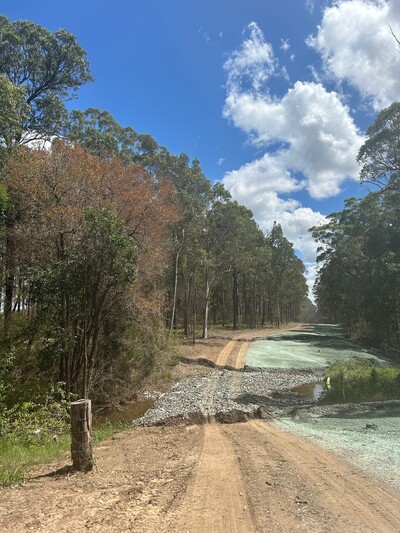This post was originally published on Sustainability Matters

Hunter Water has significantly bolstered its water supply infrastructure with the installation of a 3 km water trunk main in Black Hill. The additional trunk main will reinforce water supply capabilities by increasing supply from Black Hill 1 Reservoir.
Hunter Water Group Manager Asset Solutions Justin Watts said the upgrades will help to ensure the infrastructure continues to operate safely and reliably, as well as catering for population growth.
“The Black Hill Trunkmain Duplication Project marks a significant milestone in our commitment to ensuring a resilient and sustainable water supply for the communities we serve,” Watts said.
“These improvements will accommodate future growth in the Cameron Park area and fortify water reliability in Maryland, Fletcher and Minmi by providing a new pipeline linked with our bulk water supply network.
“By duplicating the existing infrastructure, we are not only preparing for future growth but also strengthening our ability to deliver reliable water services.”
Location of trunk main duplication upgrades in Black Hill.
The duplicate pipeline was constructed from John Renshaw Drive to Black Hill, entirely within the confines of the existing pipeline corridor.
“In order to complete this work, our Hunter Water crews completed trenching and under-boring along the new pipeline route — all while working closely with the local community to minimise impacts from the construction,” Watts said.
“These upgrades are a crucial component of Hunter Water’s overarching program aimed at the replacement and enhancement of water- and wastewater-related assets throughout our area of operations,” he added.
Hunter Water has another water main project that is about to commence, involving replacement of 1.4 km of pipeline between O’Connells Road and Reflection Drive in Louth Park. This pipeline replacement will assist with improving water efficiency, as well as preventing leaks.
The utility said these upgrades are part of an extensive program of works to improve assets and replace aging infrastructure across the region.
More information about the upgrades is available at: hunterwater.com.au/community/major-projects-in-your-area.
Top image caption: Trunk main duplication work in progress at Black Hill. Images courtesy of Hunter Water.





0 Comments